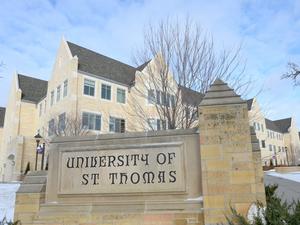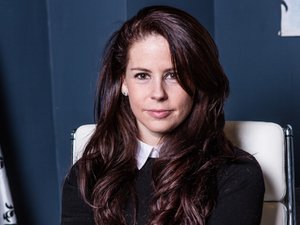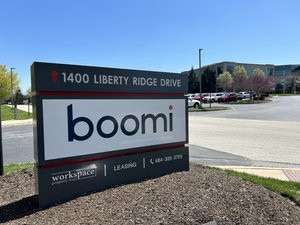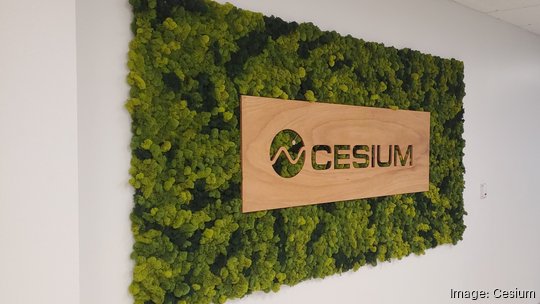
The metaverse's eventual role in everyday life seems inevitable, and one Philadelphia company is positioning itself to be integral to the buildout of virtual reality on a large scale.
Cesium, founded in 2019, is a platform used by software developers to create 3D geospatial applications that allow viewers to see every crack in the sidewalk or every spec of dirt on a construction site, according to CEO Patrick Cozzi. It has been used by Red Bull to give people a way to track contestants as they navigate the terrain in its X-Alps race, Komatsu Construction to visualize digital twins of construction sites, and Bentley Systems to create detailed digital infrastructure.
Cozzi thinks Cesium has the opportunity to play a central role in the development of the metaverse. He said Cesium will "provide the technology for massive-scale real world models" as the metaverse continues to grow.
"I might go into the metaverse and feel like I am in Old City, Philadelphia, and I can see every brick on every building and the crack on the sidewalk," Cozzi said.
The metaverse is a growing collection of interconnected virtual reality and digital platforms. Bridging the digital and physical worlds is at the core of Cozzi's mission at Cesium, and the metaverse in many ways blurs the line between the two. The company's opportunities to grow will only expand as usage and awareness of the metaverse grow.
"People start seeing a more immersive 3D-based computing experience be more central to their life and then that puts more attention on 3D geospatial," Cozzi said. "It's kind of this connection between the physical and digital world. So the whole awareness of the metaverse has been very positive for us."
Cozzi hosts a podcast titled "Building the Open Metaverse" with Epic Games executive Marc Petit. The Cesium CEO is a former teacher of computer and information science at the University of Pennsylvania, where he also received his master's degree.
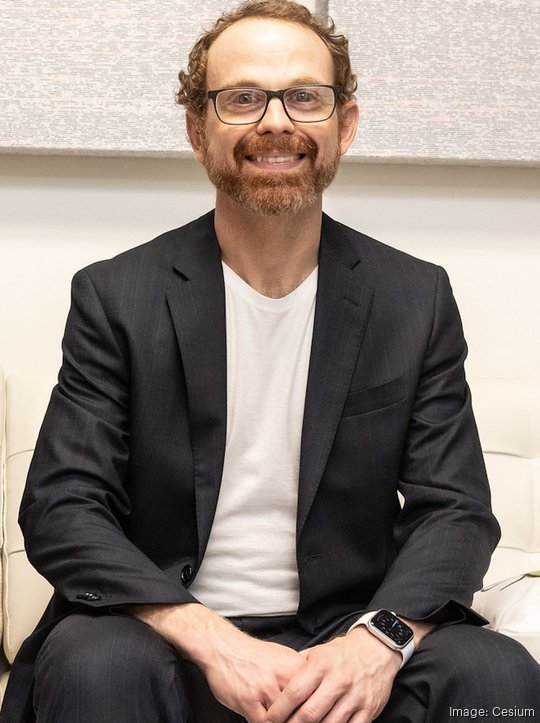
Cozzi spun Cesium out of Analytical Graphics Inc., an aerospace company where he was working to create a platform to visualize satellites in space. That project ultimately led to the buildout of a time-dynamic virtual globe and software with the ability to create detailed 3D maps. The endeavor became its own independent company when Cesium launched four years ago with $5 million in funding.
Cozzi said Cesium has been cashflow positive each year since it was founded and has had compounding year-over-year revenue growth of 23%. It has expanded from 13 employees at the time of its launch to a current headcount of 45. Cozzi said he hopes to add 20 more employees by the end of this year.
Cesium has been a tool for the construction industry, but it is now leaning further into the gaming world. Cesium has collaborated with the Unity Game Engine and the Unreal Game Engine, which powers Fortnite, for example. One example of what those collaborations can produce, according to Cozzi, could be using real-world, real-time data to make a more enhanced flight simulator.
"We built this bridge to connect the geospatial ecosystem with the game engine ecosystem so they can do much more than games, much more than virtual worlds," said Cozzi. "Certainly as we look towards the next year, it's to kind of deepen the opportunities there."
Those types of collaborations are something Cozzi hopes to grow. The company recently announced a $1 million investment fund to "help fuel the 3D geospatial ecosystem." Grants will range from $5,000 to $50,000 and would go to individual entrepreneurs, early stage startups and educational organizations. It's a unique position for a young technology company to be in, but Cozzi views it as an investment in the larger 3D geospatial world.
"What can you do with that capital? You could invest in lots of different ways, but we are believers in supporting the developer community and that as we invest this capital in these grants, it's ultimately just going to create more overall value for everyone," Cozzi said.
